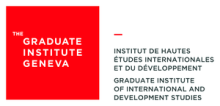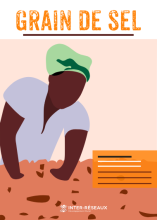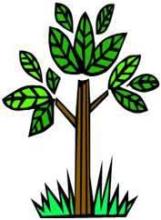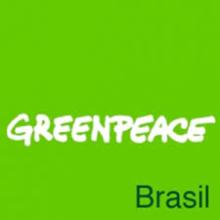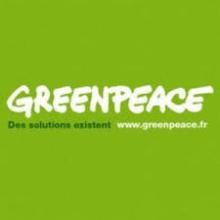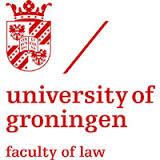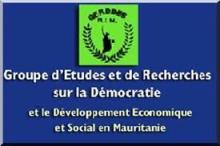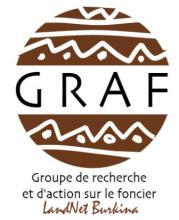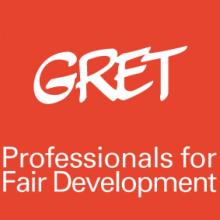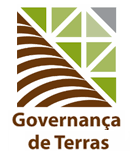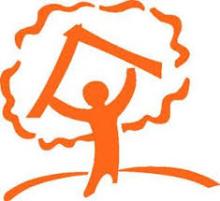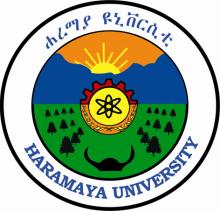The Land Library includes resources from more than 1,900 national and international information providers. Learn more about the organizations and institutions using the Land Portal to share their open-access research, data and stories.
Governo da República de Moçambique
Moçambique é um país da costa oriental da África Austral que tem como limites: a norte, a Tanzânia; a noroeste, o Malawi e a Zâmbia; a oeste, o Zimbábwe, a África do Sul e a Suazilândia; a sul, a África do Sul; a leste, a secção do Oceano Índico designada por Canal de Moçambique.
No Canal de Moçambique, os vizinhos são Madagáscar e as Comores (incluindo a possessão francesa de Mayotte). No Oceano Índico, para leste da grande ilha de Madagáscar, situam-se as dependências de Reunião, Juan de Nova e Ilha Europa. No Canal de Moçambique, sensivelmente a meia distância entre o continente e Madagáscar, o atol de Bassas da Índia, igualmente possessão francesa.
A capital de Moçambique é Maputo ( foi chamada por Lourenço Marques durante a dominação portuguesa).
A metade norte (a norte do rio Zambeze) é um grande planalto, com uma pequena planície costeira bordejada de recifes de coral, limitando no interior com maciços montanhosos pertencentes ao sistema do Grande Vale do Rift. A metade sul é caracterizada por uma larga planície costeira de aluvião, coberta por savanas e cortada pelos vales de vários rios, o mais importante dos quais é o rio Limpopo.
Governo de Portugal
Following its heyday as a global maritime power during the 15th and 16th centuries, Portugal lost much of its wealth and status with the destruction of Lisbon in a 1755 earthquake, occupation during the Napoleonic Wars, and the independence of Brazil, its wealthiest colony, in 1822. A 1910 revolution deposed the monarchy; for most of the next six decades, repressive governments ran the country. In 1974, a left-wing military coup installed broad democratic reforms. The following year, Portugal granted independence to all of its African colonies. Portugal is a founding member of NATO and entered the EC (now the EU) in 1986.
Portugal is a semi-presidential republic.
Source: CIA World Factbook
Graduate Institute of International and Development Studies
The Graduate Institute of International and Development Studies is an institution of research and higher education dedicated to the study of world affairs, with a particular emphasis on the cross-cutting fields of international relations and development issues.
Through our core activities, we aim to promote international cooperation and make a contribution to the progress of developing societies. More broadly, we endeavour to develop creative thinking on the major challenges of our time, foster global responsibility and advance respect for diversity.
We are a cosmopolitan community located in the heart of Geneva, an international city and a centre of global governance. By intensely engaging with international organisations, NGO’s, governments and multinational companies, we participate in global discussions and prepare future policy-makers to lead tomorrow’s world.
GRAIN
GRAIN is a small international non-profit organisation that works to support small farmers and social movements in their struggles for community-controlled and biodiversity-based food systems. Our support takes the form of independent research and analysis, networking at local, regional and international levels, and fostering new forms of cooperation and alliance-building. Most of our work is oriented towards, and carried out in, Africa, Asia and Latin America.
GRAIN’s work goes back to the early 1980s, when a number of activists around the world started drawing attention to the dramatic loss of genetic diversity on our farms — the very cornerstone of the world’s food supply.
We began doing research, advocacy and lobbying work under the auspices of a coalition of mostly European development organisations. That work soon expanded into a larger programme and network that needed its own footing. In 1990, Genetic Resources Action International, or GRAIN for short, was legally established as an independent non-profit foundation with its headquarters in Barcelona, Spain.
By the mid-1990s, GRAIN reached an important turning point. We realised that we needed to connect more with the real alternatives that were being developed on the ground, in the South. Around the world, and at local level, many groups had begun rescuing local seeds and traditional knowledge and building and defending sustainable biodiversity-based food systems under the control of local communities, while turning their backs on the laboratory developed ‘solutions’ that had only got farmers into deeper trouble. In a radical organisational shift, GRAIN embarked on a decentralisation process that brought us into closer contact with realities on the ground in the South, and into direct collaboration with partners working at that level. At the same time, we brought a number of those partners into our governing body and started regionalising our staff pool.
By the turn of the century, GRAIN had transformed itself from a mostly Europe-based information and lobbying group into a dynamic and truly international collective — functioning as a coherent organisation — that was linking and connecting with local realities in the South as well as developments at the global level. In that process, GRAIN’s agenda shifted away from lobbying and advocacy much more towards directly supporting and collaborating with social movements, while retaining our key strength in independent research and analysis.
GRAIN is an organisation that represents no one but itself. However, it is through collaboration and partnerships that we link in with local and national realities and play a meaningful role in our information, research, advocacy and networking activities, be it in the regions or at international level. In fact, we work with many groups in different parts of the world to produce and disseminate collaborative publications and analyses, and engage in other collaborative projects.
Between April and June 2012, GRAIN underwent its latest external evaluation. This evaluation focused on GRAIN’s work on land grabbing, over the period 2008-2011. The executive summary and recommendations are available here. (A copy of the full report can be made available on request.)
Grain de sel
Grain de sel est la revue semestrielle d’Inter-réseaux Développement rural. Chaque numéro est consacré à une thématique précise et vise à faire participer aux débats et réflexions autour de ce thème une diversité d’acteurs et de points de vue. Elle est diffusée à plus de 5000 exemplaires en version papier et envoyée par mail à plus de 10 000 abonnés.
L’objectif d’Inter-réseaux est de faciliter l’émergence, la mise en place et la diffusion d’actions innovantes et pertinentes pour un développement rural basé sur une agriculture durable et préservant les exploitations familiales. Inter-réseaux et ses membres partagent, en effet, une même conviction, celle du rôle essentiel des agricultures familiales dans la sécurité alimentaire et nutritionnelle, le développement territorial et la préservation de l’environnement. Son rôle est de mieux faire connaître les réalités des acteurs et actrices du monde rural, particulièrement en Afrique de l’Ouest et du Centre mais aussi de mieux comprendre les implications pour les populations rurales d’Afrique des changements globaux (changement climatique, évolutions démographiques, enjeux géopolitiques, etc.)
Green Scenery
Green Scenery is concerned that 60% of the total area in one of the districts in Sierra Leone could soon be converted for large-scale industrial oil palm plantations.
Greenpeace
Greenpeace is a global network of independent national and regional Greenpeace organisations (NROs) and Greenpeace International as a coordinating organisation.
The NROs are responsible for implementing and carrying out campaigns that fall under the long-term global campaign programme. Each NRO consists of one or more separate legal entities, and has its own board in a supervisory role. These boards are usually elected by a voting membership of volunteers and activists, who are firmly rooted within the local environmental communities. NROs are licensed by Greenpeace International to use the Greenpeace name within their territories.
Greenpeace Brasil
O Greenpeace chegou ao Brasil no mesmo ano em que o país abrigou a primeira e mais importante conferência ambiental da História, a Eco-92.
O protesto que marca a fundação da organização por aqui foi uma ação contra a usina nuclear de Angra. Chegando por mar, ao bordo do navio Rainbow Warrior, os ativistas fixaram 800 cruzes no pátio da usina, simbolizando o número de mortos no acidente de Chernobyl.
A primeira grande vitória no Brasil se deu um ano após a inauguração do escritório, com a proibição da importação de lixo tóxico. Ainda na década de 1990, tiveram início as campanhas contra o uso dos gases CFC – que atacam a camada de ozônio – e de transgênicos, que levou à aprovação de uma lei para a rotulagem de alimentos com organismos geneticamente modificados.
De olho na proteção da maior floresta tropical do mundo, em 1992 começou a investigação sobre a exploração ilegal e predatória de madeira na Amazônia.
Para a redução das emissões de gases do efeito estufa, o Greenpeace trabalha em um cenário de [R]evolução Energética, para pressionar o governo a incentivar o setor de energia eólica, solar e biomassa.
O Greenpeace ajudou o Brasil a levar mais a sério o debate ambiental, enquanto a realidade do país mostrou à organização que os problemas ambientais e os sociais caminham juntos.
Os desafios da organização cresceram com o país. O ritmo do desmatamento na Amazônia vem caindo, mas ainda é alarmante, sem que os problemas tenham sido resolvidos. Por outro lado, o Brasil, que tinha tudo para aproveitar seus recursos naturais para se tornar uma potência energética de matriz quase 100% limpa, ainda quer investir em energias sujas e perigosas como petróleo e nuclear – e por isso a organização faz campanha pelo incentivo e pelo investimento em fontes renováveis de energia, como eólica, solar e biomassa.
Greenpeace France
Greenpeace est une organisation internationale. Elle est présente sur tous les continents et tous les océans grâce à ses 28 bureaux nationaux et régionaux et ses trois bateaux. Elle compte près de trois millions d'adhérents à travers le monde qui la soutiennent et agissent avec elle.
Greenpeace est une organisation indépendante des Etats, des pouvoirs politiques et économiques. Greenpeace n'est soutenu par aucun parti et n'en soutient aucun. Cependant, Greenpeace intervient dans le débat politique et a des relations avec les représentants du monde politique. Mais ces contacts sont limités par des règles d'éthique propres à l'organisation.
L'indépendance de Greenpeace est aussi financière. Nous refusons toute contribution provenant d'entreprises et toute subvention publique. Cette indépendance structurelle est le gage de notre liberté de parole et d'action, en tous lieux et en toutes circonstances.
Greenpeace est une organisation non-violente. De sa première action à aujourd'hui, Greenpeace a toujours été guidée par la même volonté de témoigner par l'action directe et non-violente. En effet, nous sommes convaincus que les individus peuvent empêcher pacifiquement que des atteintes soient portées à l'environnement, même quand elles sont le fait des plus puissants intérêts.
Greenpeace a pour but de dénoncer les atteintes à l'environnement et d'apporter des solutions qui contribuent à la protection de l'environnement et à la promotion de la paix. La mission essentielle de Greenpeace est de travailler par rapport à des enjeux globaux (climat, énergie, biodiversité, etc.) qui peuvent avoir un impact direct ou indirect pour chaque habitant de notre planète.
Nous préférons nous concentrer en profondeur sur ces sujets et essayer d'obtenir des avancées importantes pour l'environnement à une échelle mondiale plutôt que se diversifier sans résultats réels sur la totalité des problèmes environnementaux.
Grenada National Water & Sewerage Authority
NAWASA’s Vision
A premier water utility providing excellent service to all customers, fostering a healthy and productive nation.
NAWASA’s Mission Statement
To provide customers with a safe, adequate and reliable water supply and safe disposal of waste water, in a viable and efficient manner, that meets and exceeds customer expectations, and ensures the development of our organization, communities and our nation.
Groningen Centre for Law and Governance
The Groningen Centre for Law and Governance (GCL) is the result of an initiative by the Faculty of Law at the University of Groningen. The Centre was established in December 2008.
The Centre contributes to legal research into the relationship between public and private interests. Research focuses on the interaction between public and private law and the function of law in the regulatory state.
“Governance” can be defined as decision- and policy-making within a group of people, an institution or a system of institutions. This includes governing with or without a government and policy-making with or without politics. When speaking about “good governance”, “best governance” of an institution could be defined as the combination of a maximum of efficiency and a maximum of democracy, transparency, accountability, sustainability and respect for fundamental and human rights and for the rule of law.
The six programmes of the Groningen Faculty of Law can be regarded as the six sides of a cube with “good governance” as content. These six programmes address the development of national and supranational legal systems in the direction of good or better societal governance from six different points of view.
The Groningen Centre for Law and Governance works in cooperation with the VU Amsterdam Centre for Law and Governance. Together these centres form the Netherlands Institute for Law and Governance (NILG).
Groupe d'Etudes et de Recherches sur la Démocratie et le Développement Economique et Social en Mauritanie
Le GERDDES est une organisation non gouvernementale à vocation Panafricaine et à but non lucratif .
Créé pour accompagner les processus de transitions démocratique impulsés en Afrique au début des années 90,
il regroupe : des universitaires, des cadres, des avocats et autres membres des professions libérales.
Il est réprésenté dans la quasi-totalité des pays africains au sud du Sahara à travers des sections pays .
Créée le 11 février 1993, la section GERDDES-Mauritanie a été officiellement reconnue en Novembre 2005. Elle compte une centaine d’adhérents, a acquis une expérience de près de quinze ans dans l’accompagnement des transitions en Afrique et enfin un réseau africain et international solide, tissé dans la confiance et le respect mutuel.
Groupe de Recherche et d'Action sur le Foncier
Groupe de Recherche et d'Action sur le Foncier (GRAF) is a Burkinabé organisation that unites leading researchers and consultants working on the issue of land rights issues.
Groupe de Recherches et d'Echanges Technologiques
Groupe de Recherches et d'Echanges Technologiques (GRET) (French, Group For Research and Technology Exchanges) is a non-governmental association supporting international cooperation, professional solidarity and poverty reduction in the countries of Asia, Africa, Europe and Latin America. It was established in the late 1970s.
Its activities include implementation of field projects, expertise, studies, research, running information and exchange networks. The main spheres of attention are:
- Access to Essential Services
- Sustainable Food and Agriculture
- Institutional Development, Actors, Territories
- Information and Communication for Development
- Microfinance and Small Enterprise
- Public Policies and International Regulations.
The Association is financed mainly by the European Union, the World Bank, the French Ministry of Foreign Affairs, the French Development Agency and also by the Asian Development Bank, Unicef, USAID and many others.
Groupe de réflexion sur la sécurité alimentaire
Le Groupe canadien sur la politique de sécurité alimentaire est un réseau d’organisations canadiennes de développement et humanitaires possédant une expertise dans les systèmes alimentaires mondiaux et la sécurité alimentaire dans les pays du Sud. Depuis 1996, nous menons des activités conjointes de plaidoyer, de recherche et de dialogue sur les politiques pour veiller à ce que les politiques internationales du Canada en matière d’agriculture et de développement améliorent la sécurité alimentaire mondiale de manière inclusive, durable sur le plan environnemental et cohérente. Le GRSA comprend plusieurs organisations membres de Coopération Canada.
GROWAFRICA
The Grow Africa partnership was founded jointly by the African Union (AU), the New Partnership for Africa’s Development (NEPAD Agency) and the World Economic Forum in 2011. Grow Africa works to increase private sector investment in agriculture, and accelerate the execution and impact of investment commitments. The aim is to enable countries to realize the potential of the agriculture sector for economic growth and job creation, particularly among farmers, women and youth.
Grow Africa facilitates collaboration between governments, international and domestic agriculture companies, and smallholder farmers in order to lower the risk and cost of investing in agriculture, and improve the speed of return to all stakeholders. Grow Africa helps establish value chain specific multi-stakeholder partnerships at the national level and engages locally through these companies. The broader Grow Africa network includes farmer, civil society, development, and research organizations.
Grow Africa’s work is fully anchored within the national and continental policy architecture of the Comprehensive Africa Agriculture Development Programme (CAADP), which to improve food and nutrition security, and increase incomes in Africa’s largely farming-based economies. CAADP, which is a NEPAD Agency programme, aims to achieve this by raising agricultural productivity and increasing public and private investment in agriculture.
Grow Africa is headquartered at the NEPAD Agency offices in Johannesburg and operates under the leadership of the NEPAD Agency Chief Executive Officer who reports into a Steering Committee comprised of members of Grow Africa’s core stakeholder groups. A secretariat team based in Johannesburg provides services across Grow Africa’s member countries.
What we do
Grow Africa is a convener and catalyst. We bring together the stakeholders necessary to make private sector investment effective. We incubate and support platforms and business models that enable those stakeholders to work together. We also play an important role in disseminating knowledge and best practice on making responsible agricultural investments work on the ground.
We do not have an implementation or project management role, but work with technical partners who implement the projects we initiate or support. Nor do we provide funding for projects – as a convener, we help partners to connect and develop collaborations, and support the development of innovative multi-stakeholder funding vehicles.
Grow Africa intends to support the 44 African countries that have signed the CAADP Compact, however, work started in the 12 countries that were interested at an early stage in taking advantage of Grow Africa’s support to mobilize private sector investment in alignment with their CAADP Plans.
Growing Science
Growing ScienceTM is a Canadian online publisher of open access academic and scientific journals. The mission of our company is to provide a forum to discuss the latest advances of different sciences. Our goal is to publish peer reviewed leading edge technology articles. Growing Science provides journals in two forms of hard and soft copies and depends primarily on subscription fees for its regular activities.
Grupo de Estudios de Relaciones Internacionales
El Grupo de Estudios de Relaciones Internacionales (GERI) se crea en el 2005 como un grupo de investigación adscrito al Departamento de Ciencia Política y Relaciones Internacionales de la UAM. El grupo se constituye con el propósito de estudiar los problemas actuales de relaciones internacionales desde los nuevos enfoques teóricos de la disciplina y con especial atención a aquéllos que inciden en la historia de las relaciones internacionales y en el papel de las identidades en la conformación del panorama internacional contemporáneo.
El GERI está integrado por los profesores e investigadores del área de “Relaciones Internacionales” del departamento mencionado. La mayoría de ellos están vinculados al Master “Relaciones Internacionales y Estudios Africanos” que, desde el curso 2004/05 ha venido obteniendo la “Mención de Calidad” del MEC. Asimismo, el GERI cuenta con la revista académica Relaciones Internacionales (ISSN.- 1699 3950) que se erige desde sus comienzos en el instrumento de publicación y divulgación del grupo investigador (www.relacionesinternacionales.info). El GERI también cuenta con un programa anual de seminarios en los que ha contado con la participación se profesores de Relaciones Internacionales de prestigio internacional como Fred Halliday, Steffano Guzzini, Mark Duffield, Jens Bartelson, Barry Gilles y Fuat Keyman, entre otros.
Grupo de Governança de Terras / Unicamp
Grupo de Investigaciones Agrarias
El Grupo de Investigaciones Agrarias, GIA, es una ONG de desarrollo que desde hace desde hace 34 años trabaja en el sector rural de Chile, en las áreas de investigación, capacitación, asesoría y ejecución de proyectos.
La finalidad de nuestra acción apunta a generar conocimientos aplicados que contribuyan al diseño de estrategias para un desarrollo sustentable y equitativo en el sector rural, considerando su dimensión económica, sociopolítica y cultural. Por esto, consideramos esencial, la satisfacción de las necesidades materiales y sociales de la población rural pobre y su participación informada y activa en la vida nacional.
El GIA fue fundado en 1978 como entidad privada sin fines de lucro y desde 1993 se rige bajo la figura legal de Corporación Privada de Desarrollo Social. Participamos en la fundación de la Universidad Academia de Humanismo Cristiano (UAHC) integrando su Consejo Directivo. También el GIA cuenta con el reconocimiento de la Comisión Nacional de Investigación Científica y Tecnológica (CONICYT) como Centro Académico Independiente (CAI).
Grupo de Trabajo Intercultural Almáciga
Almáciga: voz de origen árabe. Sust. fem. Semillero. Lugar en donde se siembran las semillas de las plantas, que, una vez nacidas, son trasplantadas a otro sitio.
Almáciga trabaja desde 1996 apoyando los procesos políticos, culturales, sociales y económicos propios de los pueblos indígenas y el reconocimiento, ejercicio y aplicación efectiva de sus derechos.
Almáciga promueve la reflexión y el análisis comunitarios, el uso de metodologías participativas y el intercambio de información y experiencias entre comunidades y pueblos de América Latina y otras regiones.
Impulsamos la construcción de una visión intercultural de la cooperación, a partir del respeto y la valoración de los distintos términos culturales que se colocan en la balanza del desarrollo y los derechos humanos. Creemos que la cultura propia es la riqueza de cada pueblo y constituye la mejor manera de enfrentar los retos de su propio desarrollo.
El grupo está compuesto por profesionales de distintos países, cuyo principal patrimonio consiste en las experiencias y vivencias con comunidades y organizaciones indígenas y con organizaciones no gubernamentales. A lo largo de los años, hemos ido tejiendo una extensa red de colaboradores y colaboradoras con los que venimos aprendiendo y elaborando una teoría y una práctica concernientes a los derechos humanos, la diversidad cultural y la cooperación.
Principios
- Almáciga es un grupo de trabajo profesional e independiente, sin vinculación con ningún credo religioso ni partido político alguno.
- Almáciga tiene como criterio en la realización de su trabajo el respeto y fomento de la diversidad cultural. No realiza ninguna actividad que pueda significar desmedro, merma o limitación de la diversidad cultural.
- Almáciga no trabaja con organizaciones o instituciones que realicen actividades que atenten contra los derechos y libertades fundamentales de los pueblos indígenas.
- En su trabajo y en su organización, Almáciga promueve la participación efectiva e igual como un criterio político, democrático y social. La participación debe ser entendida de acuerdo con los criterios culturales de los pueblos con quienes se trabaja. La participación debe ser un criterio definidor de las acciones que se emprendan y los proyectos que se apoyen.
- El desarrollo que promueve Almáciga en su trabajo es un desarrollo sostenible, endógeno y participativo.
- Almáciga realiza su trabajo en asociación con organizaciones e instituciones de los pueblos indígenas, así como con otras ONG de apoyo.
Grupo Semillas
Quiénes somos
Somos una organización no gubernamental ambientalista y desde 1994 apoyamos las organizaciones indígenas, afros y campesinas de Colombia, en acciones para la protección y control local de los territorios, los recursos naturales, la biodiversidad, los sistemas productivos sostenibles, la soberanía y la autonomía alimentaria de las poblaciones rurales. Realizamos acciones conjuntas con organizaciones ambientales, académicas y distintos sectores de la sociedad por medio de actividades de formación, difusión, articulación e incidencia sobre las políticas públicas ambientales y rurales.
Misión
Contribuir en los procesos de defensa y protección del territorio, preservación de la biodiversidad y fortalecimiento de la soberanía alimentaria de las organizaciones campesinas, indígenas y afros de Colombia, aportándoles herramientas conceptuales y técnicas que les permitan defender su autonomía, sus recursos y sistemas productivos, en la construcción de propuestas alternativas de vida sustentables.
Visión
Aportar a una sociedad fundamentada en territorios autónomos y sustentables; una sociedad en donde los derechos colectivos de las comunidades y organizaciones campesinas, afros e indígenas se respeten sobre la base del reconocimiento de su territorio, autonomía y conocimiento tradicional, y desde la promoción de alternativas de vida sustentables, asociados a la conservación de la biodiversidad, a la permanencia y control de sus territorios, sus recursos, sistemas productivos y al fortalecimiento de su soberanía alimentaria.
Gurtong Trust
Gurtong Trust - Peace and Media Project is an independent, not-for-profit South Sudan project, which aims at removing all ethnic, political or personal obstacles on the way to unity, peace and mutual respect among South Sudanese.
At Gurtong we use our media platforms to engage with different sections of the community both on the ground and online including the women, youth within South Sudan and in the Diaspora.
Our work is built on four pillars:
Peace – Gurtong promotes peace and reconciliation for the benefit of the people of South Sudan
Information – Gurtong facilitates access to information by provision of well researched information and enlightening our audiences on governance, health, economic development, education, travel related issues.
Culture – Gurtong supports increased knowledge and celebration of the values of our cultural diversity by making available information on the different ethnic communities in South Sudan.
News and Features – Gurtong aims at providing regular and up-to-date of news and feature stories from across South Sudan.
Habitat for Humanity International (HFHI)
About Habitat for Humanity International
Habitat for Humanity International's vision is a world where everyone has a decent place to live. Since 1976, Habitat has helped more than 6.8 million people gain strength, stability and independence through housing, including home construction, rehabilitation and repairs and by increasing access to improved shelter through products and programs. Habitat also advocates to improve access to decent and affordable shelter and offers a variety of housing support services that enable families with limited means to make needed improvements on their homes as their time and resources allow. As a nonprofit Christian housing organization, Habitat works in more than 70 countries and welcomes people of all races, religions and nationalities to partner in its mission.
About Habitat for Humanity International – Latin America and the Caribbean Region (HFHI-LAC)
HFHI through its National Offices or partners is building up an extensive network of allies at both national and local levels in Argentina, Bolivia, Brazil, Chile, Colombia, Costa Rica, Dominican Republic, El Salvador, Guatemala, Guyana, Haiti, Honduras, Mexico, Nicaragua, Paraguay, Peru, and Trinidad and Tobago; carrying out a remarkable work related to land, disaster risk reduction, water and sanitation, community development, housing construction, advocacy, and housing finance issues. Particularly relevant to land the HFHI-LAC Area Office coordinates the GLTN LAC Urban Cluster, a land-focused collective space to activate alliances, mobilize skills, build capacities and engage decision makers, CSO leaders, private sector, academia and communities in innovative land instruments (existing or new) that may develop, accelerate and scale up processes of change and empower the most vulnerable to face the challenges posed by the growth of cities, urbanization, planning, land management, administration and secure tenure. Local and regional land related initiatives are leveraged by ongoing “Solid Ground” HFHI Land Advocacy Global Campaign, and contributing to HABITAT III global process.
Habitat International Coalition
The Habitat International Coalition (HIC) is the global network for rights related to habitat. Through solidarity, networking and support for social movements and organizations, HIC struggles for social justice, gender equality, and environmental sustainability, and works in the defense, promotion and realization of human rights related to housing and land in both rural and urban areas.
Habitat para Humanidade Brasil
Habitat para a Humanidade Brasil (HPH Brasil) é uma organização não-governamental, sem fins lucrativos, que tem como causa a promoção da moradia como um direito humano fundamental e como meta a eliminação de todas as formas de moradia inadequada. HPH Brasil faz parte da rede internacional Habitat for Humanity (HFH), presente em mais de 90 países.
No Brasil desde 1992, HPH Brasil articula e apóia o desenvolvimento de comunidades, por meio de ações de construção, reforma e melhoria de unidades habitacionais; regularização urbanística e fundiária de assentamentos. O objetivo dessas ações é viabilizar condições adequadas de habitabilidade para que famílias e comunidades, em situação de vulnerabilidade, tenham um lugar seguro para viver e se desenvolver.
O objetivo do trabalho da Habitat é possibilitar um ambiente seguro e saudável onde famílias se desenvolvam ainda mais. O acesso à moradia adequada é essencial para a conquista de outros direitos. Este é o primeiro passo em direção a um futuro com inúmeras oportunidades.
Justamente por acreditar que precisamos atender às pessoas que estão em situação de mais vulnerabilidade, Habitat prioriza em seus projetos famílias lideradas por mulheres; com crianças, idosos, pessoas com doenças crônicas ou deficiência.
HakiMadini
HakiMadini is rights based not for profit organization with a mission to advance the rights of marginalized Tanzanians through research, education and development projects.
HakiMadini essentially started as a reaction to the human rights abuses that were occurring during late 1990s in mining communities.
Our Core Values
- Integrity
- Team work & Volunteerism
- Transparency & Accountability
- Networking & Collaboration
Haramaya University
Vision
Haramaya University strives to be one of the leading African Universities with international reputation by 2025.
Mission
The Mission of Haramaya University is to produce competent graduates in diverse fields of study, undertake rigorous, problem solving and cutting edge researches,disseminate knowledge and technologies, and provide demand-driven and transformative community services.
Motto
The motto of Haramaya University is “Building the Basis for Development”
Goal
The goal of Haramaya University is to evolve as an autonomous and independent (academic and research institution) graduate and research university with a competitive national and international quality and relevance standards in its academic, research and community services endeavours.



